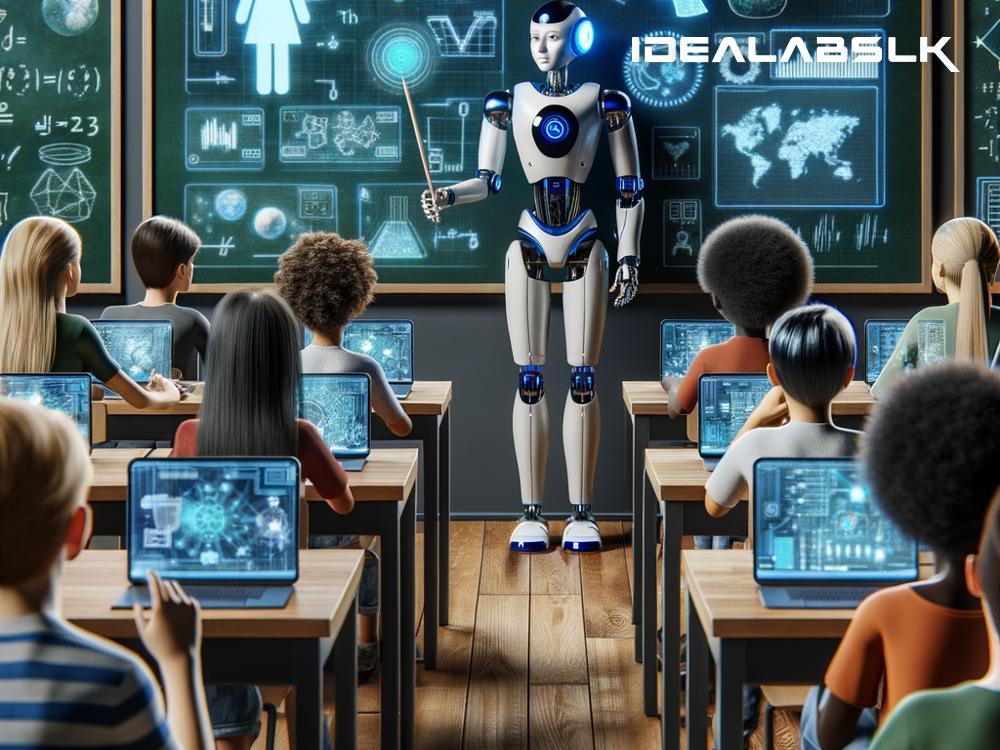Blog Title: How Machine Learning Will Shape Tomorrow's Classrooms
In the rapidly changing world of technology, machine learning (ML) is stepping out from the shadows of complex coding and algorithms into the bright light of day-to-day applications. Among its most promising horizons is the transformation of education. The way we learn and teach is on the cusp of a major revolution, thanks to the advancements in machine learning. But what does this really mean for future classrooms? Let's break it down into simpler terms.
Personalized Learning Experiences
Imagine a classroom where each student receives a personalized learning plan that adapts to their pace and style of learning. Sounds futuristic? Well, the future is closer than you might think. Machine learning is making it possible to analyze each student's interaction with educational material, understand their strengths and weaknesses, and then tailor the learning experience just for them. Every quiz taken, every answer given, and every educational game played feeds data back into the system, allowing it to continuously adapt and offer a more customized experience.
Early Detection of Learning Disabilities
Detecting learning disabilities early can significantly alter a student's learning journey for the better. Machine learning algorithms can monitor a student's performance over time and identify patterns that might indicate a potential learning disability. This can enable timely intervention, providing students with the necessary support they need to thrive academically.
Automating Administrative Tasks
Teachers often find themselves bogged down by administrative tasks such as grading and scheduling. Machine learning can take on these tasks, automating the grading process for standard assignments and helping in crafting schedules that optimize learning outcomes. This gives educators more time to focus on teaching, planning lessons, and, most importantly, interacting with their students.
Enhancing Engagement Through Gamification
Machine learning is transforming the way educational content is delivered. By incorporating elements of gamification and interactive learning, machine learning algorithms can create educational games and activities that are not just fun but also tailored to suit each student's learning curve. This, in turn, increases engagement and motivation, making learning a more enjoyable process.
Predictive Analytics to Improve Educational Outcomes
Predictive analytics is another exciting application of machine learning in education. By analyzing past student performance, machine learning can predict future outcomes and provide insights into how to improve those outcomes. For instance, if a student is predicted to struggle with a particular concept or subject in the future, targeted interventions can be designed to prevent that from happening.
Facilitating Lifelong Learning
Learning doesn't stop after graduation; it's a lifelong process. Machine learning can assist in this by providing personalized learning opportunities well beyond the school years. Whether it's learning a new skill, brushing up on an old one, or exploring an entirely new field, machine learning can help tailor educational content to fit individual needs, current knowledge levels, and learning preferences.
Breaking the Barriers of Traditional Education Models
The traditional one-size-fits-all model of education is increasingly becoming outdated. The future of education, powered by machine learning, promises a more inclusive, adaptive, and engaging learning experience for all types of learners. This means that no matter where a student starts or what challenges they face, the education system will be equipped to support and guide them towards reaching their full potential.
What Does This Mean for Teachers and Students?
For teachers, machine learning offers tools to enhance their teaching methodology, reduce their workload, and provide more personalized attention to their students. For students, it opens up a world of learning that is more in tune with their individual needs, making education a more rewarding and enriching experience.
Conclusion: The Future is Bright, and Smart
The potential for machine learning to revolutionize education is immense. By making learning experiences more personalized, engaging, and efficient, it has the power to not just change the way we learn, but also ensure that every learner can achieve their full potential. The classrooms of the future, powered by machine learning, will be dynamic spaces of innovation and inspiration, paving the way for a smarter, more educated world. As we stand on the brink of this exciting revolution, one thing is clear: the future of education is not just bright; it’s intelligent.
The journey towards integrating machine learning into education is just beginning, but its impact is set to last a lifetime, reshaping not only how we teach and learn but also how we think about education itself. Welcome to the future of education, where machine learning stands ready to open doors to incredible possibilities for learners and educators alike.

